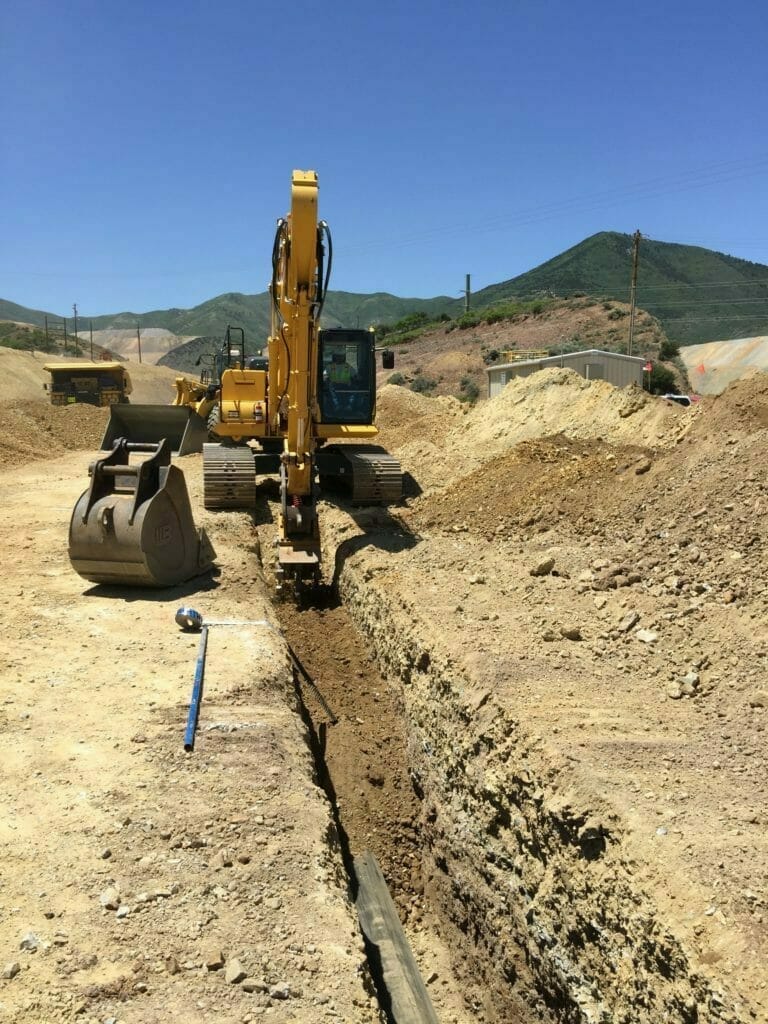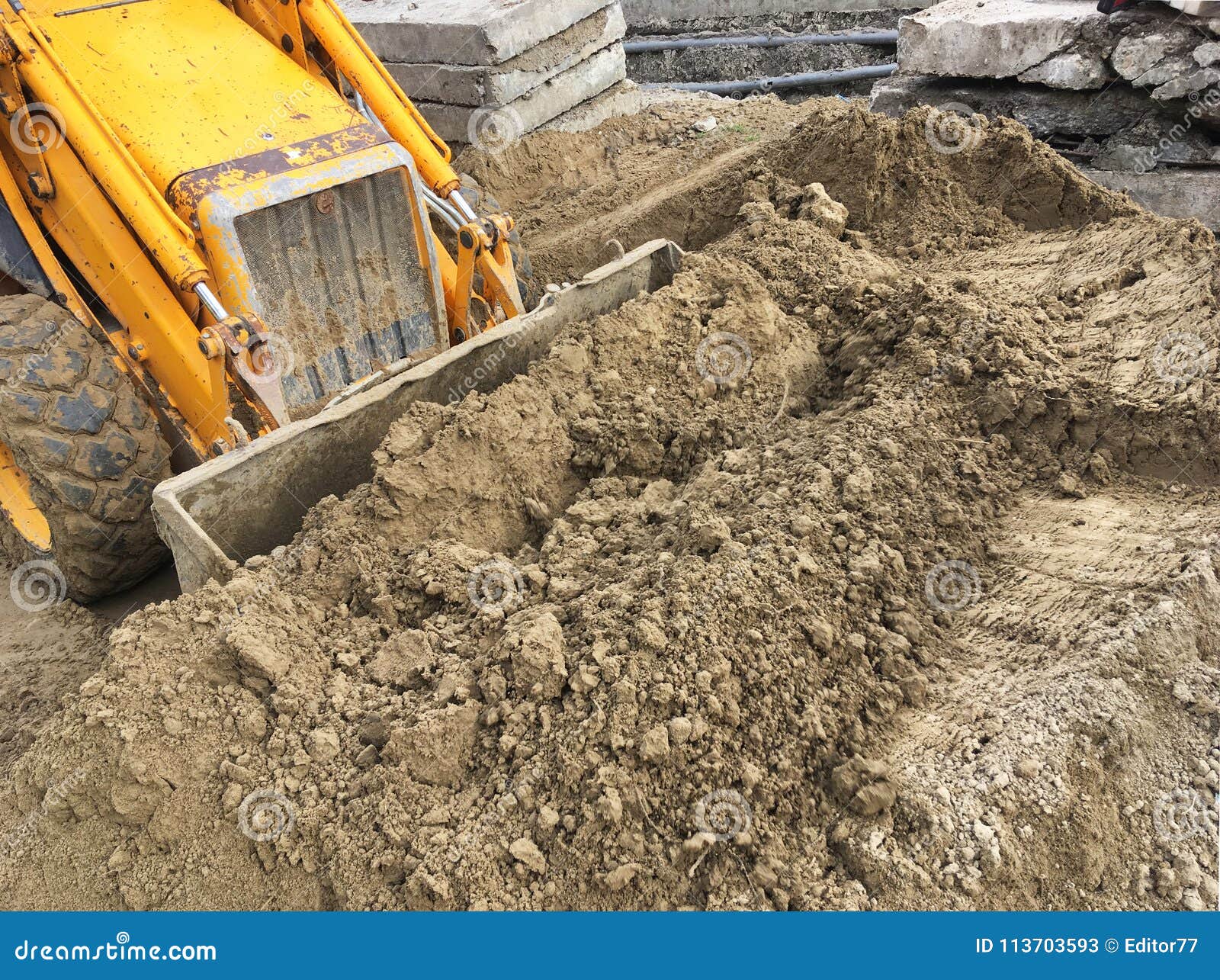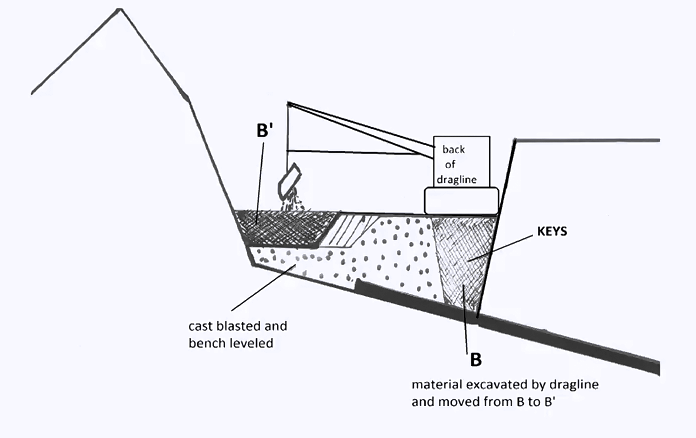Concrete Contractors for Beginners
Wiki Article
The Only Guide for Grading Contractors
Table of ContentsTrencher Can Be Fun For EveryoneSome Ideas on General Contractor You Should KnowThe Greatest Guide To Concrete ContractorsSome Known Details About Trencher Some Ideas on Excavation Contractors Near Me You Should Know


Scrapers or Pans dig deep into soil in one place, haul and also dump the soil in an additional place (trencher). It is hard to match the efficiency of scrapers for cut/fill dirt procedure if the haul range is much less after that a mile. Scrapes are usually pulled by a rubber tire wheel tractor and are often pressed with the cut location by an excavator.
There are lot of times that scrapes are not used for site grading as well as a dump truck is used: the haul might be to long, the haul might cross roadways where scrapers are not permitted, hard rock may be come across, tools schedule, and so on. Discard vehicles remain in common use as well as most likely need little discussion.
Lots of vehicles have a top-hinged tailgate that can not dispose any type of rock broader then the tailgate width. "Rock body" beds, on the other hand, have no tailgates and also can unload any kind of dimension rock, although their volume capability is reduced. These internet links reveal devices specs for a number of common dump trucks. Compaction Equipment raises the thickness of the soil and in many cases provides a smooth, rolled surface area.
7 Easy Facts About Demolition Explained
From a straightforward examination pit to percussion exploration to core drilling the owner has increasingly a lot more pricey options that produce significantly much better information concerning the website underground. The Owner on a 100,000 SF building task might license twenty uninteresting areas with split spoon soil samples taken until rock is gotten to and also then core samples of rock.Knowing the kind and also high quality of rock (from the core samples) and area of rock (from the dirts boring) is a genuine advantage in jobsite planning. Conversely, the Proprietor of a 100,000 SF structure may make a decision to proceed with no geotechnical testing whatsoever. The choice concerning geotechnical testing is normally made by an Owner without input from the Building and construction Manager.
An expertise of the approximate location of the rock aids the Building Manager to prepare the sequence of steps adhering to rock excavation. If rock is in one edge of a large structure job, for example, the planet excavation might start at the opposite end of the building in order to start structure work soonest.
Beginning the foundation job early would be an excellent concept if the rock can be eliminated by tearing. If the rock is exceptionally hard as well as calls for substantial blasting, it may be sensible to hold foundation work till the blasting is completed. The Construction Manager ought to work with these sorts of decisions as well as make use of all the technical date available.
Getting My Excavator To Work
Unidentified excavation stipulates that all rock or various other unanticipated materials (excluding unsafe products) come across in the sitework will certainly be the duty of the Specialist at no modification in contract expense. An unclassified excavation is less complex from a book-keeping perspective and puts the responsibility for geotechnical problems onto the Sitework Contractor.Just How Water Affects Sitework? It's remarkable what a hefty rain can do to a building and construction job. Before the rain, the site might be completely dry, heavy equipment successfully relocating planet, the other professions efficiently performing their job. Within hours the job can be a careless, mud-hole with worker performance cut to regarding 10%.
In a lot of areas of the globe, the Building Manager must remember an easy fact: IT WILL RAINFALL. Great planning can minimize the damages as well as disruption of a hefty rainfall to a jobsite. Frequently the excavation as well as grading is left to the Sitework index Specialist (and also their Foremen is accountable to supervise as well as direct the heavy equipment as well as drivers).
For That Reason the Building and construction Manager should be continually knowledgeable about what rainfall will do to the job website. It is not uncommon for the Sitework Foreman to function their hefty equipment for optimal efficiency and also wish it doesn't rainfall. Among the best ways to get ready for rainfall is to incline all qualities to drain and to smooth rolled the surface before a rain.
Excavation Companies for Beginners
The Construction Supervisor need to be far-sighted enough to insure that hefty rain does not quit working on the project longer than needed. Daily conversations with Sitework Foremen may be needed to attain this objective. At any time excavation is called for listed below the existing groundwater level on a job, the process of dewatering need to be thought about.In a truly cohesive dirt, the water takes a find more info trip so slowly through the clay or silt that dewatering is not normally required for the reasonably brief time of excavation. Dewatering might be required for a solitary ground excavation or for a whole job site. The most usual dewatering approaches are trench drains, deep wells and well factors.

Ground water seepage can additionally be reduced by cutoff methods such as sheet stacking. High dewatering prices have actually faded the revenue margins on much too several jobs.
This alternative ought to constantly be thought about when evaluating the possibility of dewatering. Obviously the choice is just practical if gravity can run the water to reduced ground. Trench drains pipes can be cut with a backhoe as well as loaded with a rugged, granular product (# 4 rock as an example), however treatment must be exercised in picking the water outlet type as well as area.
Mini Excavator for Beginners
A siphon, by meaning, uses air pressure to lug water from one elevation, up over a challenge, to a reduced elevation. The pipelines in a siphon system need to be airtight and also some ingenuity is frequently called for to completely excavating near me load the siphon pipe. The siphon pipeline must be complete for the siphon to begin.A deep well includes a pump, hose as well as an upright well casing. The pump intake is at the bottom of the well casing (usually some smashed stone is positioned down there as a filter tool) (mini excavator). The water is inflated the pipe, out of the well case, and also to an ideal discharge area.
In a rugged sand, as an example, a huge area can be pumped to near the pump consumption elevation. A less absorptive soil, on the other hand, decreases the effectiveness of a deep well. Considering that the pump is generally at the end of the deep well, there are no elevation constraints due to vacuum lift, and also deep wells can reduce the groundwater over 50 feet.
On the base of the wellpoint there is a 2 foot long screen and valve, water jets out of this valve as well as develops an opening right into which the wellpoint pipeline can be lowered. This hole is usually made a larger diameter (as an example 10 inches) to enable a rugged sand backfill to assist filter the water (excavation contractors near me).
Report this wiki page